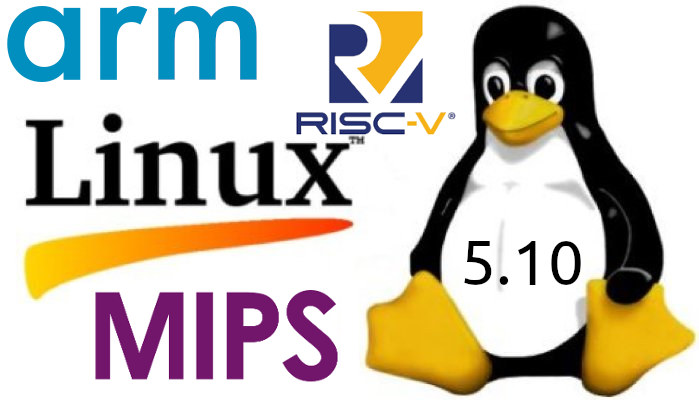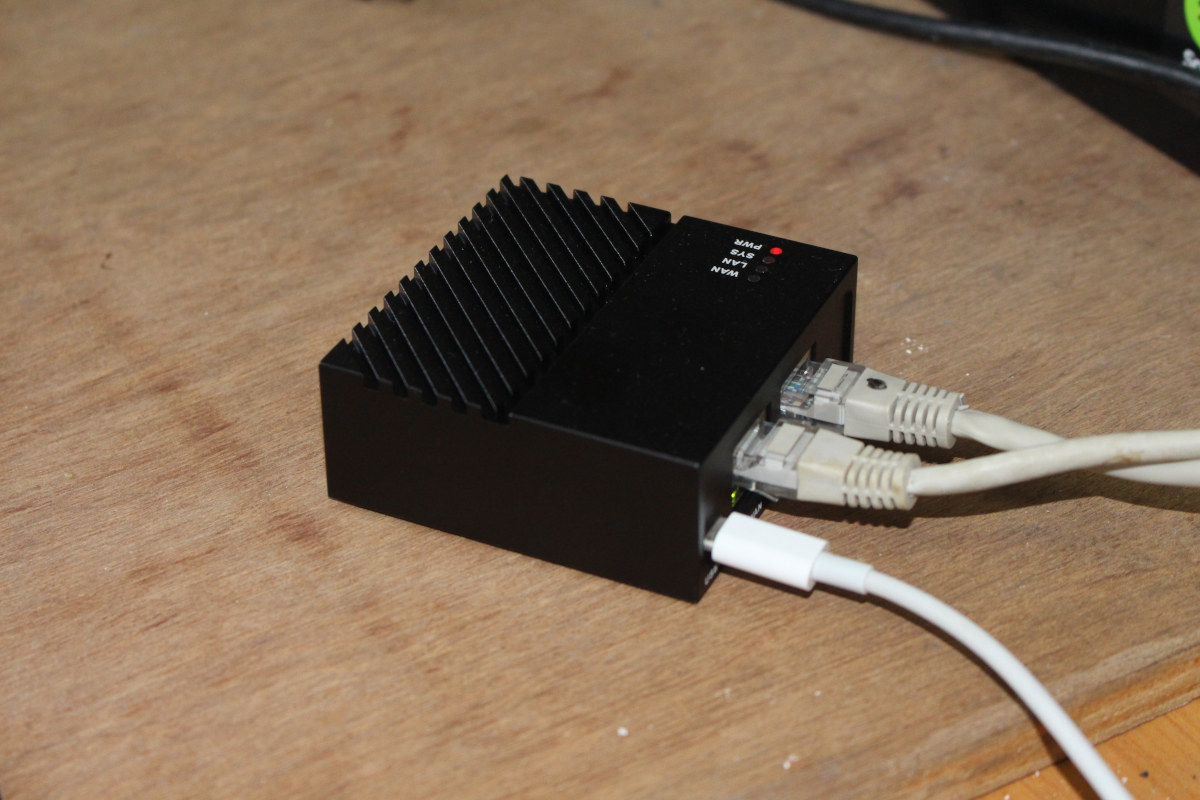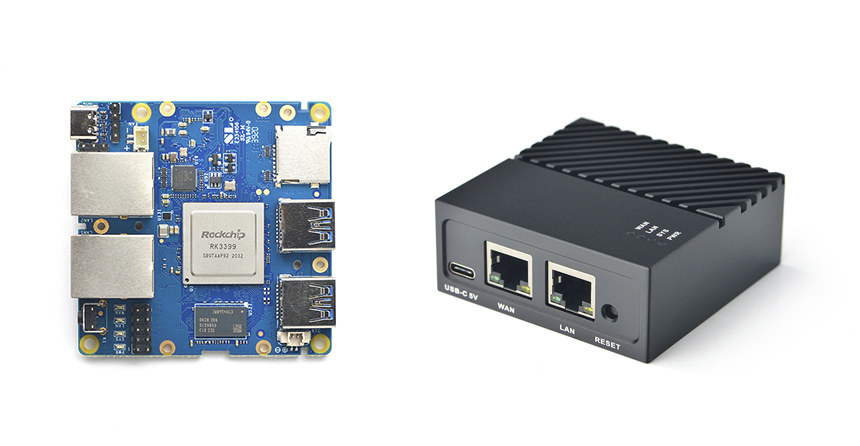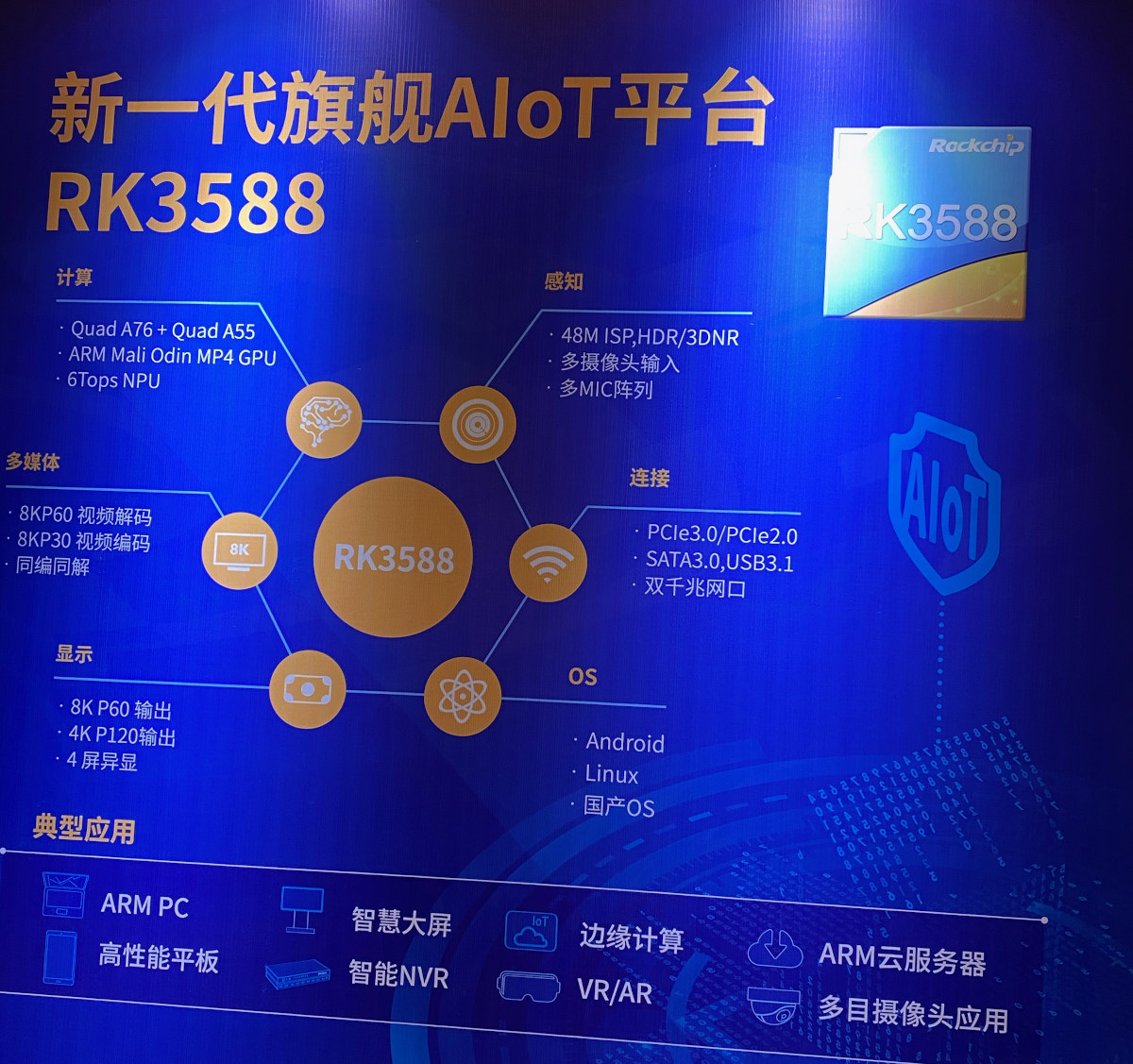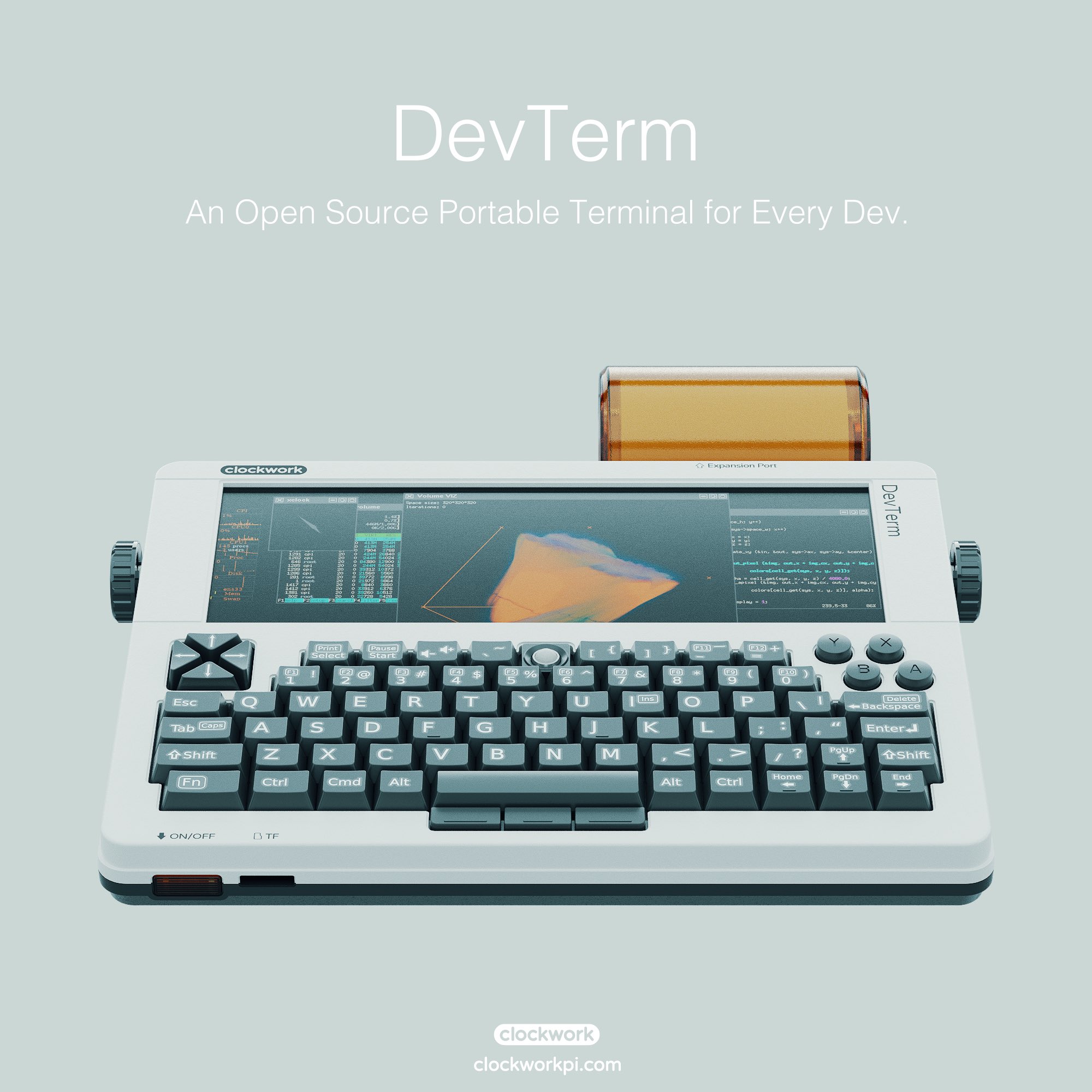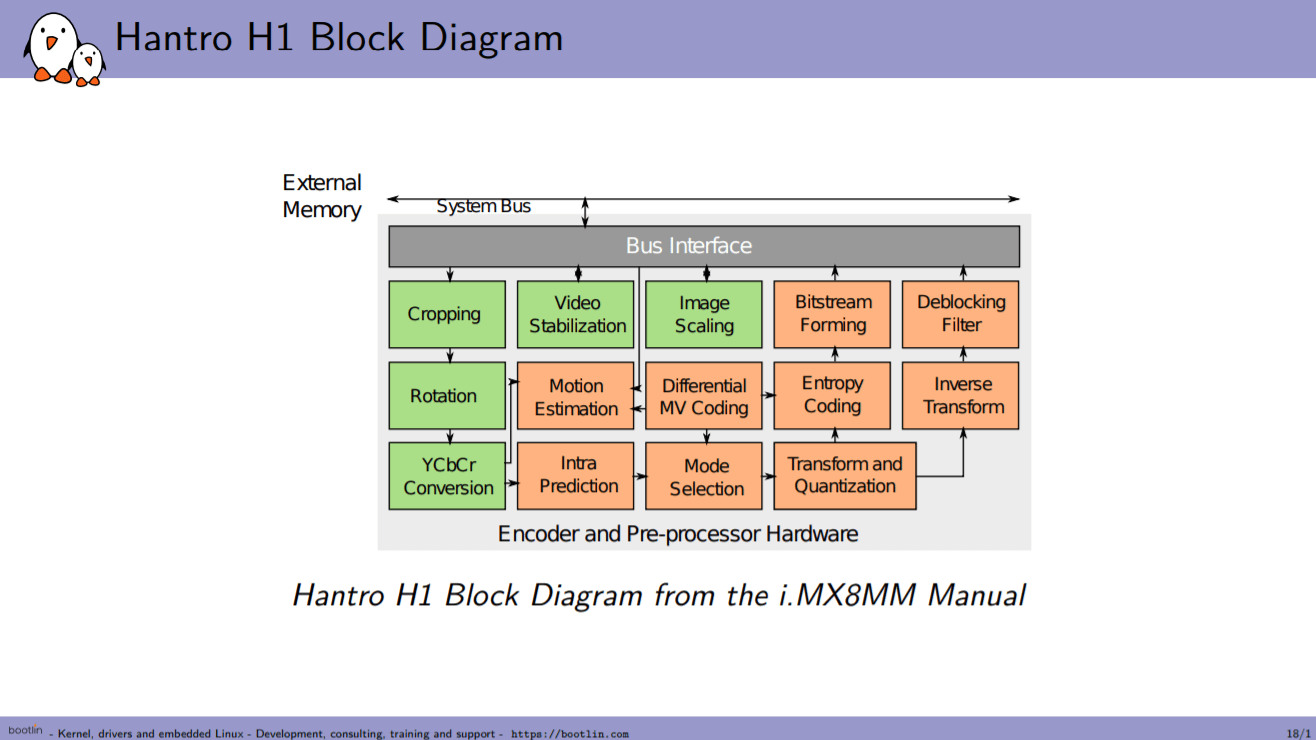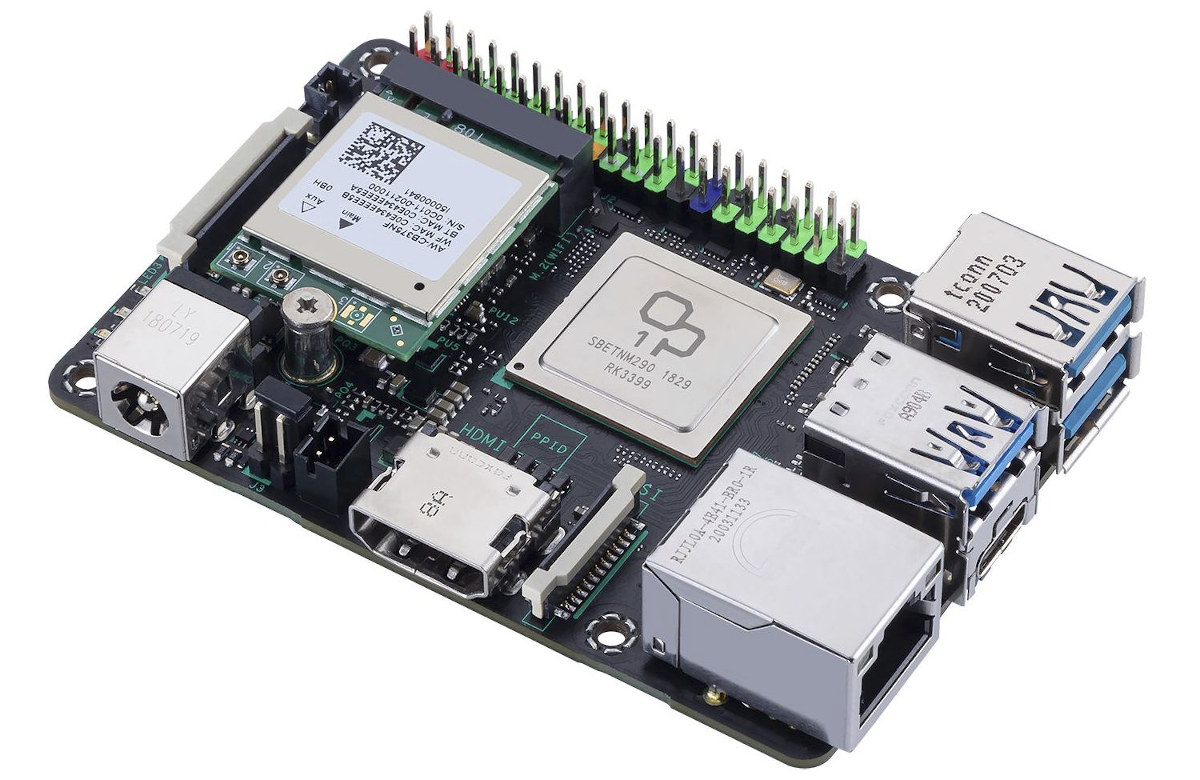Hardkernel introduced ODROID-Go ESP32-based portable gaming console in 2018. The following year, the Korean company went up the scale with ODROID-Go Advance (aka OGA) running Linux on Rockchip RK3326 quad-core Cortex-A35 processor. We’ve now got a new 2020 announcement with ODROID-Go Super (OGS) with most of the same specifications as OGA, but a larger 5-inch 854×480 display replacing the 3.5-inch 480×320 display, a higher capacity battery, and the addition of a second analog joystick and dedicated volume buttons. ODROID-Go Super (preliminary) specifications: SoC – Rockchip RK3326 quad-core Arm Cortex-A35 processor @ 1.3GHz with Mali-G31 MP2 GPU System Memory – 1GB DDR3L @ 786Mhz, 32 Bits bus width Storage – 16MB SPI Flash for bootloader, push-push Micro SD Card slot (UHS-1 Capable interface) Display – 5-inch 854×480 TFT LCD (MIPI-DSI interface) Audio – 3.5mm earphone stereo jack, 0.5Watt 8Ω Mono speaker USB – 1x USB 2.0 host port Buttons – F1, […]
Linux 5.10 LTS release – Main changes, Arm, MIPS and RISC-V architectures
Linus Torvalds has just released Linux 5.10: Ok, here it is – 5.10 is tagged and pushed out. I pretty much always wish that the last week was even calmer than it was, and that’s true here too. There’s a fair amount of fixes in here, including a few last-minute reverts for things that didn’t get fixed, but nothing makes me go “we need another week”. Things look fairly normal. It’s mostly drivers – as it should be – with a smattering of fixes all over: networking, architectures, filesystems, tooling.. The shortlog is appended, and scanning it gives a good idea of what kind of things are there. Nothing that looks scary: most of the patches are very small, and the biggest one is fixing pin mapping definitions for a pincontrol driver. This also obviously means that the merge window for 5.11 will start tomorrow. I already have a couple […]
NanoPi R4S SBC preview with OpenWrt and Ubuntu Core
Rockchip RK3399 powered NanoPi R4S router SBC launched at the beginning of the month, and FriendlyELEC kindly sent a review sample to CNX Software. I intended to test thermally performance, Ethernet, and USB like I did for NanoPi R2S and NanoPi NEO3, but Armbian is not available right now, so I could not use some of the tools I normally used right now. So instead, I tested the board/gateway with the image from FriendlyELEC. First FriendlyCore based on Ubuntu Core 20.04, but there some issues which we’ll detail in this preview, so I then switch to FriendlyWrt built upon OpenWrt 19.07 which works better, but I still encountered some problems. That’s just to say it might be better to wait a little longer until Armbian images are released, or until FriendlyELEC fixes some of the shortcomings. NanoPi R4S gateway unboxing Before testing the software, let’s see what I’ve received. NanoPi […]
NanoPi R4S SBC launched with optional metal case for $45 and up
We found NanoPi R4S board in a work-in-progress Wiki last month. The tiny single board computer is designed for headless applications but comes with much better specifications compared to similar boards with a Rockchip RK3399 hexa-core processor with up to 4GB RAM, dual Gigabit Ethernet, and USB 3.0 ports. At the time we had limited information, but FriendlyELEC has now started selling the board for $45 and up, together with an optional metal case for a fanless operation that should ensure very good cooling. Here’s a reminder of NanoPi R4S specifications: SoC – Rockchip RK3399 hexa-core processor with dual-Core Cortex-A72 up to 2.0GHz, quad-core Cortex-A53 up to 1.5GHz, Mali-T864 GPU with OpenGL ES1.1/2.0/3.0/3.1, OpenCL, DX11, and AFBC support, 4K VP9 and 4K 10-bit H265/H264 60fps video decoder System Memory – 1GB DDR3 or 4GB LPDDR4 Storage – MicroSD card slot Networking – 2x GbE, including one native Gigabit Ethernet, and […]
Rockchip RK3588 specifications revealed – 8K video, 6 TOPS NPU, PCIe 3.0, up to 32GB RAM
Rockchip RK3588 is one of the most anticipated processors for the year on this side of the Internet with the octa-core processor features four Cortex-A76 cores, four Cortex-A55 cores, an NPU, and 8K video decoding support. [Update December 2021: check out our post with the RK3588 datasheet for the latest details about the processor] The roadmap shows an expected launch date in Q3/Q4 2020, but sadly the release date will be pushed back in the future. Having said that, the Rockchip Developer Conference (RKDC) is now taking place, and the company has put up a poster that reveals a bit more about the processor. That means we now have more detailed Rockchip RK3588 specifications: CPU – 4x Cortex-A76 and 4x Cortex-A55 cores in dynamIQ configuration GPU – Arm Mali “Odin” MP4 GPU AI Accelerator – 6 TOPS NPU 3.0 (Neural Processing Unit) VPU – 8Kp60 video decoding support, 8Kp30 encoding […]
DevTerm with ClockworkPi v3.14: a modular, portable computer
After the launch of ClockworkPi GameShell in Q4 2018, now ClockworkPi has come with yet another exciting product. DevTerm is a portable computer that comes with a 6.8-inch IPS screen, a keyboard with 67 keys, and a battery module, all connected to ClockworkPi v3.14 carrier board and a choice of core modules. It will also come with an optional built-in thermal printer. ClockworkPi v3.14 Mainboard and the Core boards The mainboard ClockworkPi v3.14 uses a compact design and comes with a reduced size of 95x77mm. With a modular design, it gives you a choice of “core board” modules for various applications. Moreover, ClockworkPi v3.14 is now compatible with the Raspberry Pi CM3 series, which means that your work on the Raspberry Pi can be “teleported” to a portable terminal without hassle. It has integrated 5GHz WIFI (802.11ac) and Bluetooth 5.0 which makes it suitable for wireless communication applications as well. […]
Hantro H1 hardware accelerated video encoding support in mainline Linux
With the increasing need for video encoding, there are some breakthrough developments in hardware-accelerated video encoding for Linux. Bootlin has been working on the implementation of Hantro H1 hardware accelerated video encoding to support H.264 encoding on Linux which follows the company’s work on the previously-released open-source VPU driver for Allwinner processors. Hantro H1 Hardware Hantro H1 is a common hardware H.264 encoder, it can also do VP8 and JPEG. It is found in a few ARM SoCs including a lot of Rockchip (RK3288, RK3328, RK3399, PX30, RK1808) and NXP (i.MX 8M Mini). Depending on the version, it can support up to 1080p at 30 or 60 fps. Here we can see different blocks used for encoding. Hantro H1 is a stateless hardware implementation which means it has no microcontroller or firmware running. As can be seen in the diagram, it has a pre-processor that can do things like cropping, […]
ASUS unveils Tinker Board 2 SBC with faster Rockchip RK3399/OP1 processor
ASUS surprised the maker community in 2017 with the introduction of the Rochchip RK3288 powered Tinker Board to compete as Raspberry Pi 3 Model B. It was followed by Tinker Board S with built-in storage and other new features, as well as Tinker Board Edge T and Edge R SBC’s both with an AI accelerator namely Google Edge TPU and the NPU inside Rockchip RK3399Pro. The company has now launched a new model called Tinker Board 2 without AI accelerator, but featuring Rockchip RK3399, or more exactly the higher grade Rockchip OP1 used in Chromebooks, delivering 96% faster single-thread performance and a 64% boost in multi-core performance compared to the Rockchip RK3288 processor found in the original Tinker Board, while the GPU is around 28% faster with glmark2-es2 off-screen benchmark. There are two variants of the board with Tinker Board 2 and Tinker Board 2S with the latter adding onboard […]



